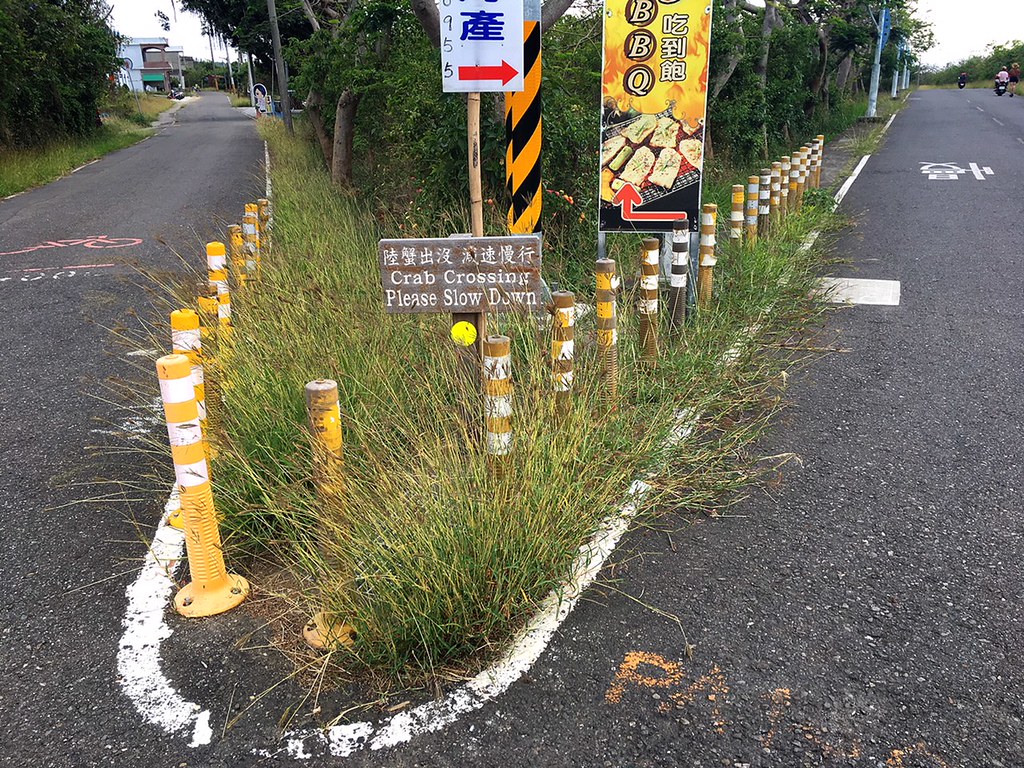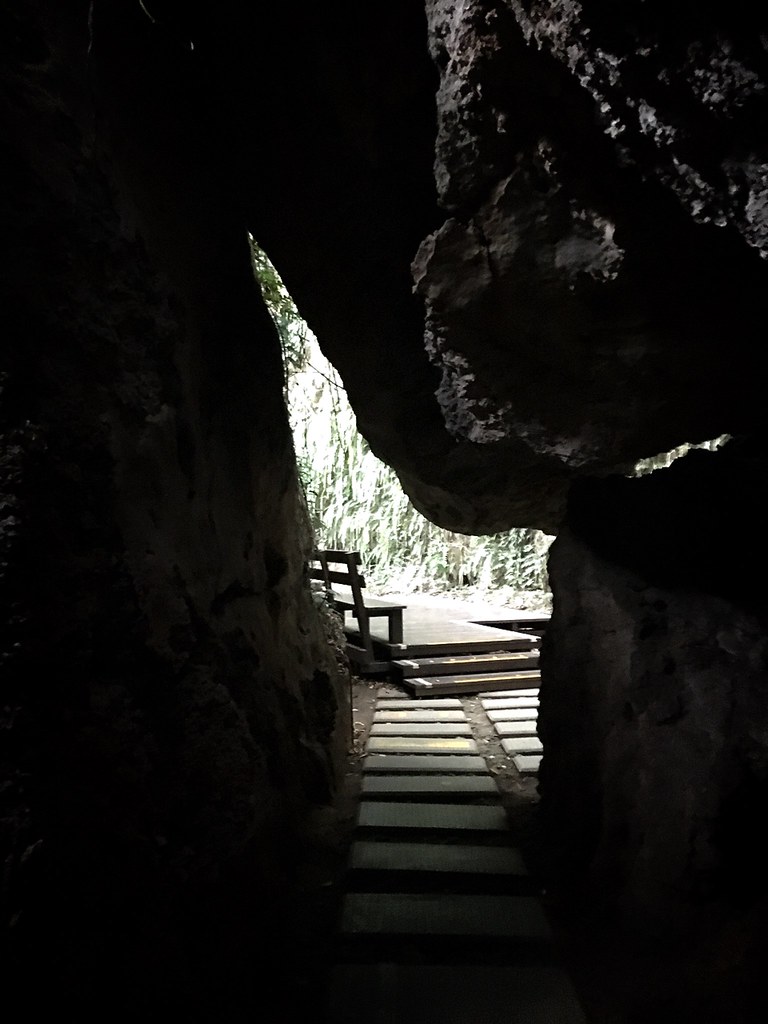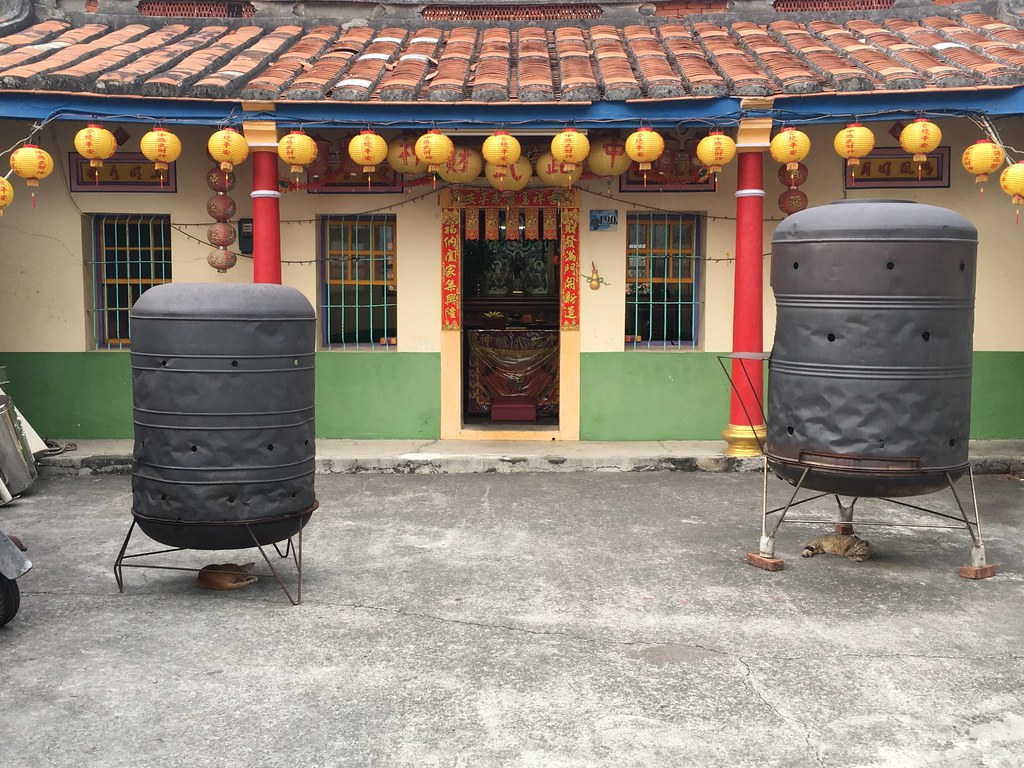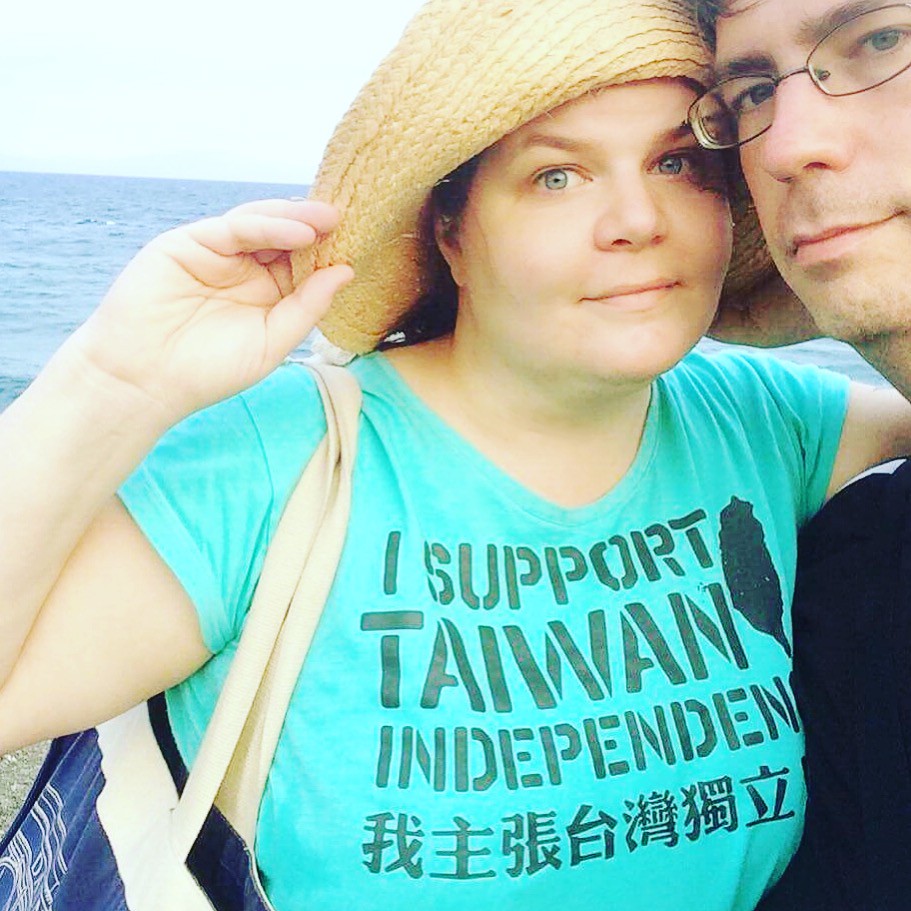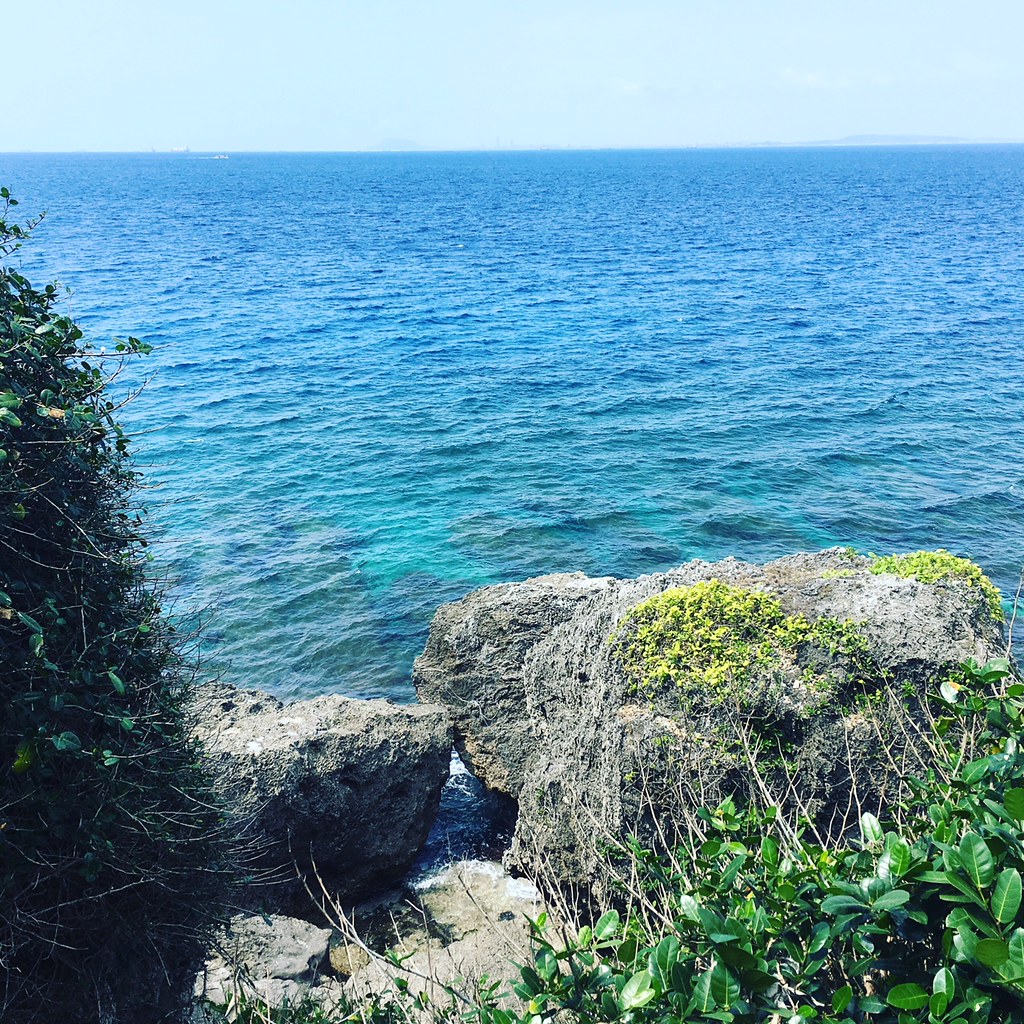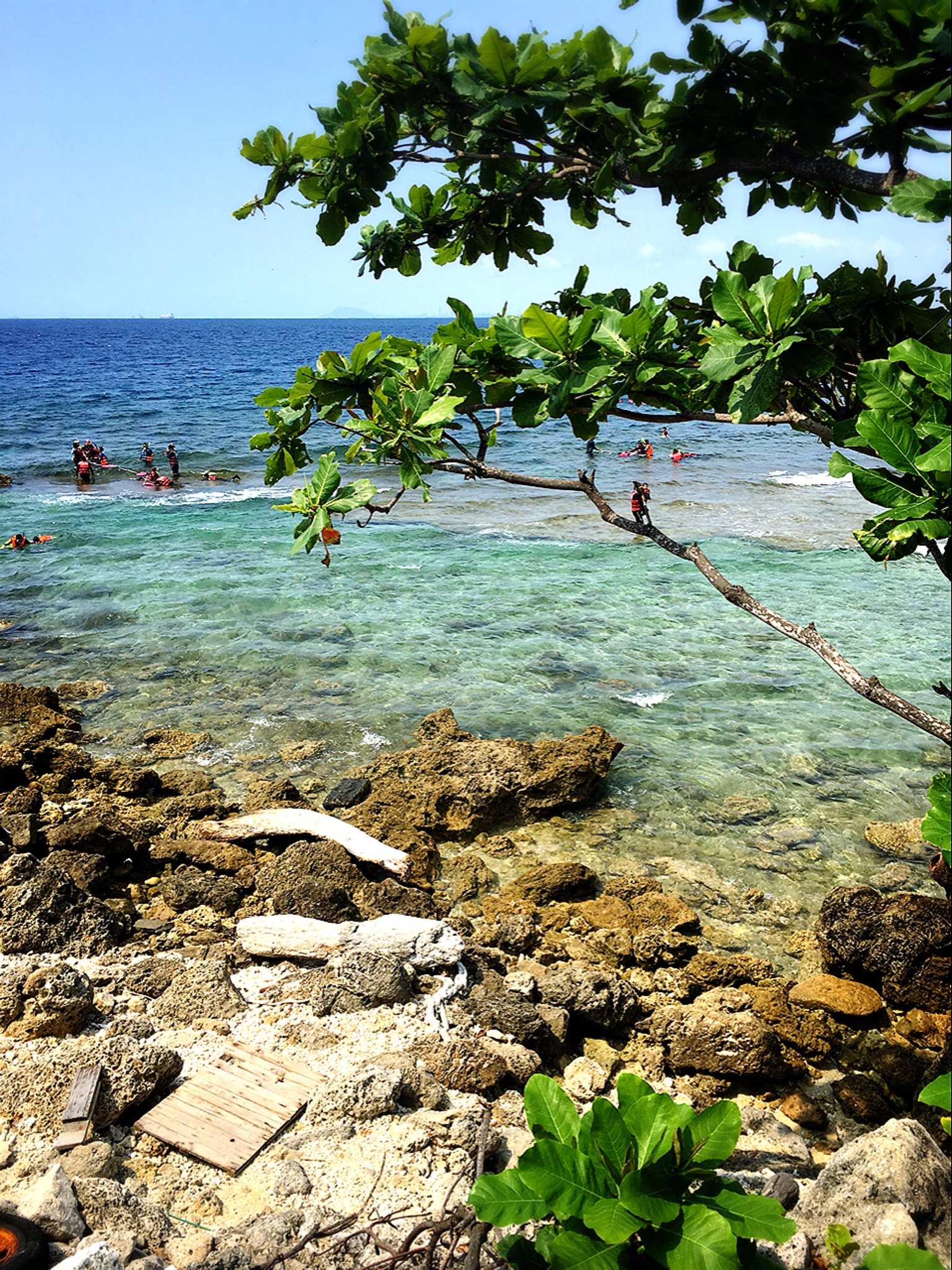
My last paper of the term is done, and I took the Tomb Sweeping holiday to travel around in southern Taiwan simply enjoying time with Brendan and meeting up with some friends. I read Crystal Boys (review coming soon), didn't write anything, generally relaxed and re-learned what it was like to be able to take a nice short trip without academia weighing on my mind.
I sent in that final paper at 6pm on Wednesday. The next morning, we hopped on the HSR to Zuoying, arranging a pickup from the HSR station to the ferry terminal in Donggang (NT600 for the trip - not bad). Little Liuqiu (小琉球), where we spent two nights and, on account of my being thoroughly exhausted from the previous day's push to get my paper in, still didn't manage to see everything. After this we spent the final two days of the long weekend in Kaohsiung and Tainan.
I enjoyed the island's rural sights and did not feel the crowds visiting them were overwhelming. Baishawei, the island's main town, was a different story. I suspect Baishawei is a fine little town to relax in on a non-holiday weekday; over the long weekend, though, it was horrible. Really horrible! I understand getting on a scooter to go out of town - there is a bus that circles the island and you can ride it fairly easily to get anywhere you might want to go - but to get on a scooter to go around Baishawei, whose streets are narrow and made for pedestrians, and the sights within walking distance of it? Come on. I get that it will be crowded, but if people realized that and used their scooters more judiciously, it wouldn't be so bad.
Beyond that, a thought struck me while navigating around Baishawei, which I shared over drinks with a friend who happened to also be on the island - a thought about water, and our orientation to it, and what that means for Taiwanese identity.
People explain away Taiwan's less-than-ideal beach infrastructure and general lack of well-maintained beaches, and the fact that many Taiwanese don't know how to swim despite living on an island, by pointing out that Chinese culture isn't a water-oriented one (leaving aside the fact that historically, Chinese fishermen, explorers, traders, pirates and seafarers have absolutely been an integral part of Chinese culture.) They point out that China doesn't have great beaches - I've been to the one in Qingdao and yeah...not great, and I haven't heard great things about Hainan. Or they mention that Chinese cities tend to be built "with their back to the sea", or generally thinking of the sea as the end of China and not an integral part of their lives. As that same friend pointed out, for a large portion of not-too-distant Chinese history, access to the coastlines was banned (which of course didn't work at all as intended).
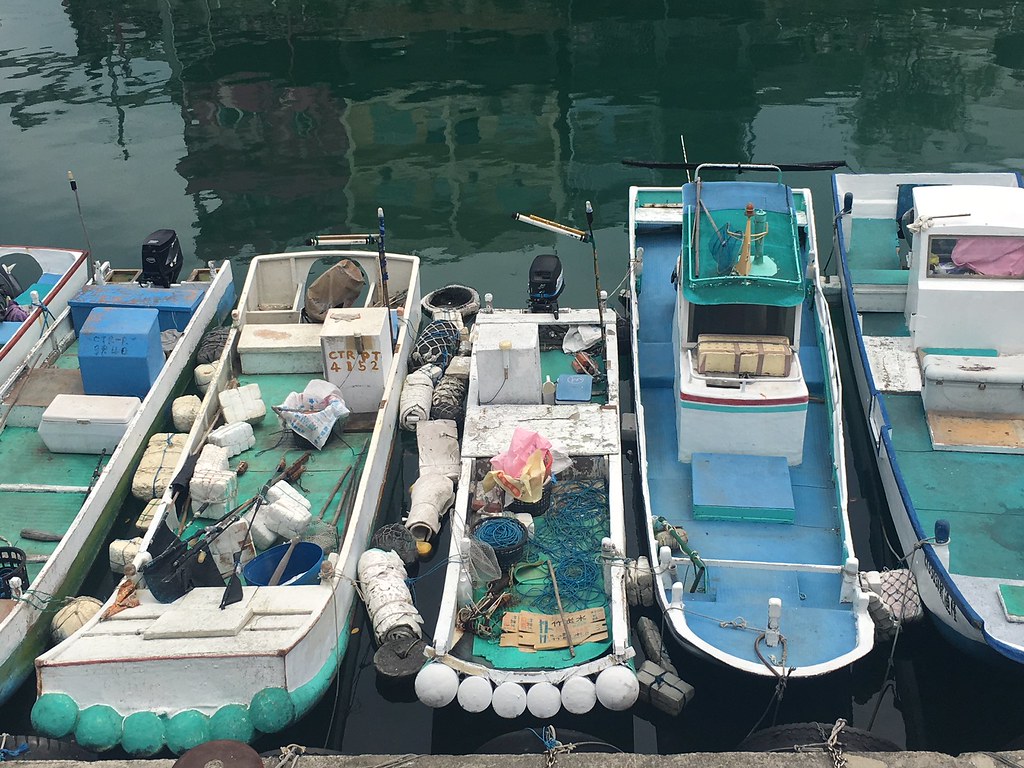
You can see that in Taiwan - for a long time, despite being an island, the coastal waters were off-limits and people "were living more like residents of a landlocked country." In terms of specific beaches, Wai'ao could be a really nice destination, except it's just off a strip of noisy road, backed by ugly buildings and an entertainment complex that is both uninviting and behind a parking area, not actually on the beach. Kenting...I don't like Kenting, let me count the ways. Baishawan allows 10,000 people to churn the water in approximately half a square meter of a long, gorgeous beach. Fulong has that hideous bridge (yes, it needs a bridge, but couldn't it be nicer?) and ugly hotel and is flanked by a lagoon to one side that smells, as one friend who worked in health care put it, "like my sick elderly patients' pee." And that's just to name a few. (Some of the outlying islands fare better.) Taiwan doesn't have a lot of gorgeous, sandy beaches, but what it does have could be better than they are.
I mean, in Taipei we live an MRT ride from the ocean and hardly ever go, because the infrastructure needed to make the beaches really nice places to swim and relax just isn't there. Taiwan's cities do indeed feel as though they are built with their backs to the sea.
But, in Little Liuqiu, I got the sense that it could be different. More kids in the younger generation are learning to swim, Taiwanese Millenials go to the beach and hang out in a way that feels distinctly familiar to me as a coastal American. On Little Liuqiu, I dare say that, while not a "great beach" (too many rocks and coral to cut your feet) Baishawei's beach was a pleasant place to hang out, and other rocky beaches have good snorkeling - and people were taking advantage of that. People were going in the water and enjoying themselves in ways I just didn't see in China (though I haven't been to Hainan).
Note how all of the cultural attitudes towards the sea that I mentioned above are in relation to Chinese culture. But Taiwan is not China - it doesn't have to be this way. Taiwanese history is rooted in Austronesian indigenous culture, and who are seafarers if not Austronesians? Taiwan's deepest history is tied to the sea. It doesn't need to hold to Chinese notions of how the sea fits into their lives, and in fact such an attitude doesn't suit it. Taiwan isn't like China, not least in terms of geography. So why have a Chinese attitude to the ocean?
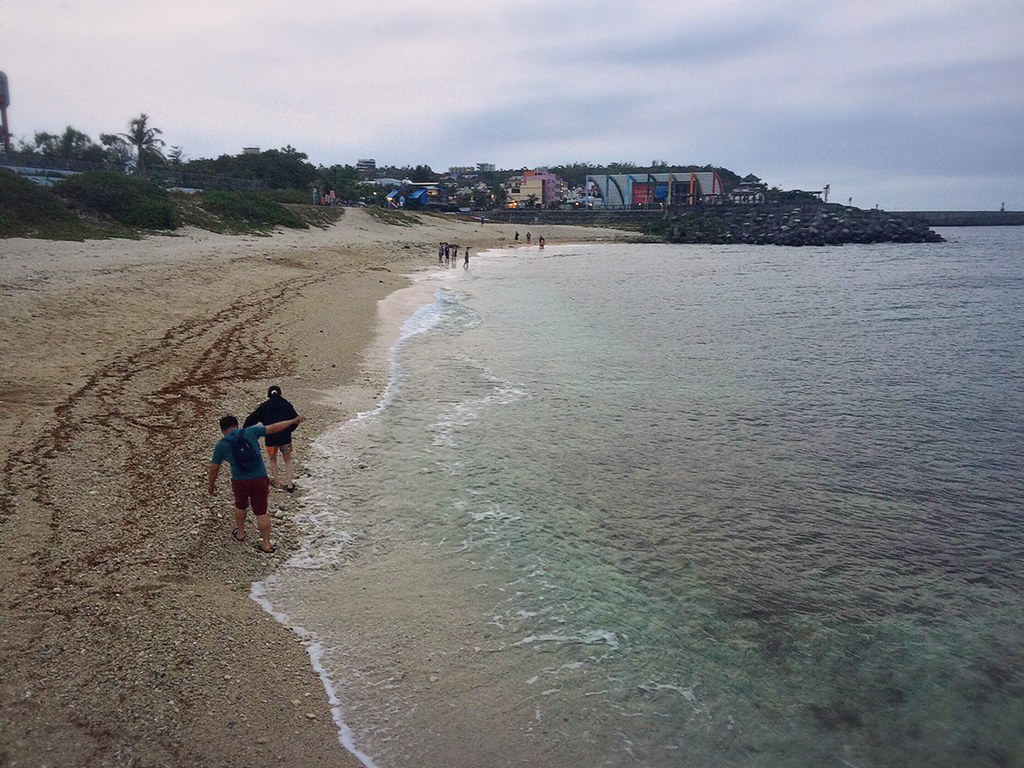
Taiwan can - and I'd argue should - grow its existing beach/sea/ocean culture as a way to not only acknowledge that it is not only a subtropical/tropical set of islands and it makes sense for warm-water island nations to be sea-oriented, but also as a way to differentiate Taiwanese culture from Chinese culture. China can turn its back to the sea - we can turn to face it. It can be a barrier for them, the "end of civilization". On our beautiful ball of mud, we can do things differently.
Taiwan doesn't need to be defined by ideas central to Chinese culture. It has its own culture and can define itself accordingly. Just because something is culturally Chinese doesn't mean it needs to be applied to Taiwan.
And that will be one small, but notable, nail in the coffin of this "Taiwanese and Chinese culture are exactly the same! They have the same history and think and act in the same way!" nonsense bandied about by people who don't know what they're talking about. It's not true, but it's hard to see that if you're just passing through (or are just some Internet bloviator). We need it to be more demonstrably untrue, and a country where the beaches are both lovely and popular would help in its own small way.
This isn't a crazy outsider idea. I'm not trying to push my foreigner thoughts on a local culture - Taiwan is already going down this path and already has more of a historical and current orientation to the ocean than China. So there is no reason why Taiwan can't [continue to] cultivate a sea-facing, sea-loving, ocean-integrated culture that is well-suited to its geography and actual non-Chinese history. Improvements need to be made, but it would be unfair to say we're not on our way.
Anyway, enjoy a few more shots of Little Liuqiu:
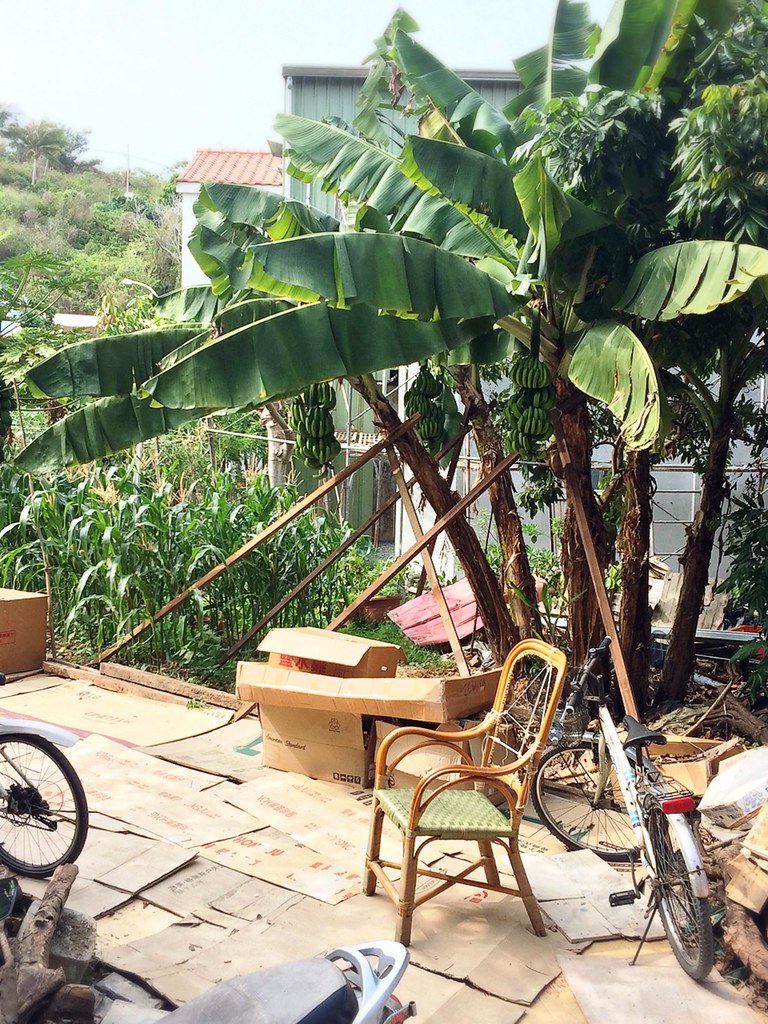
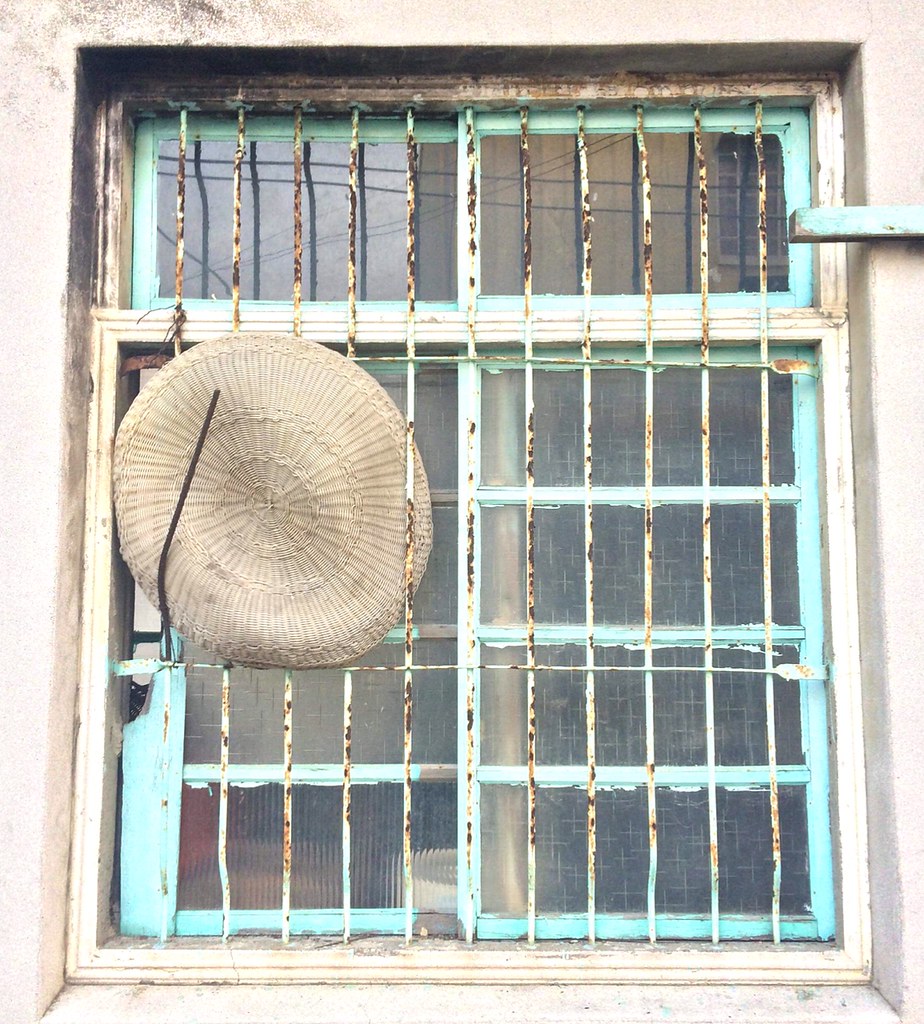
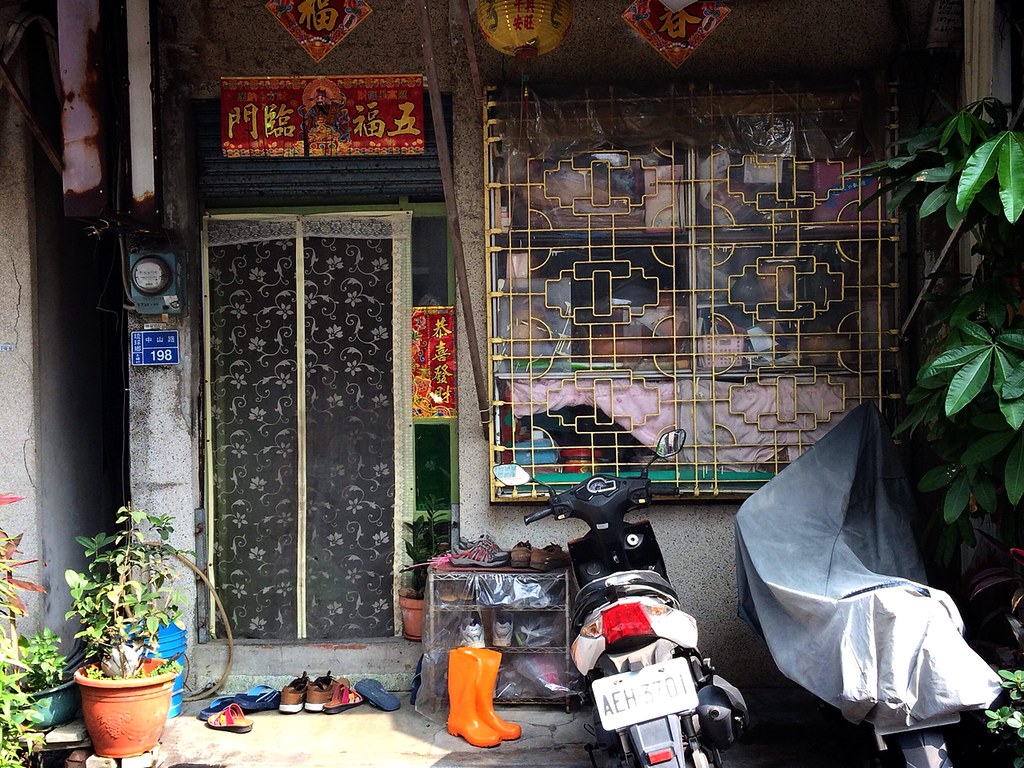
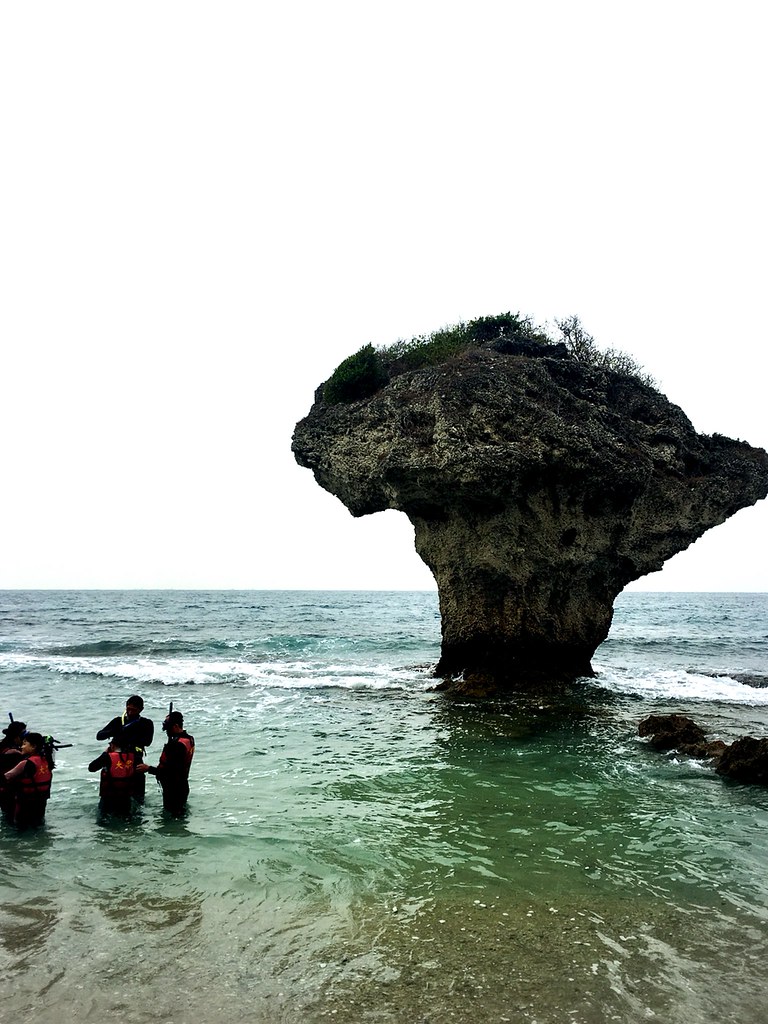
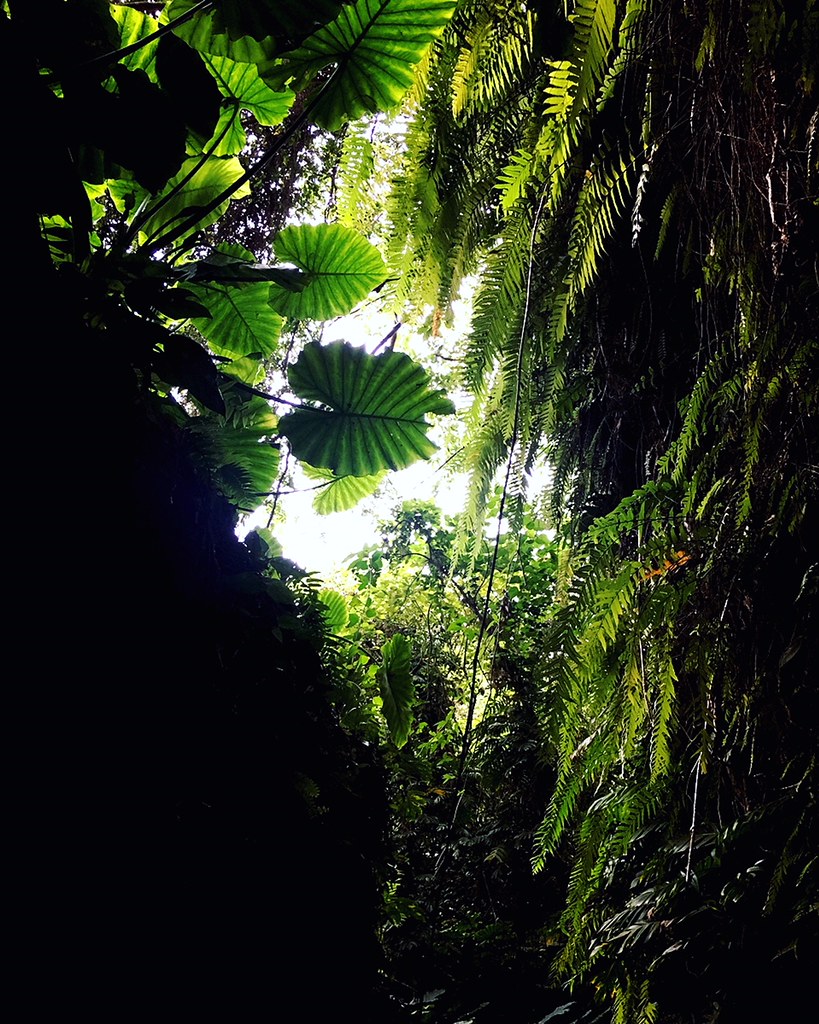
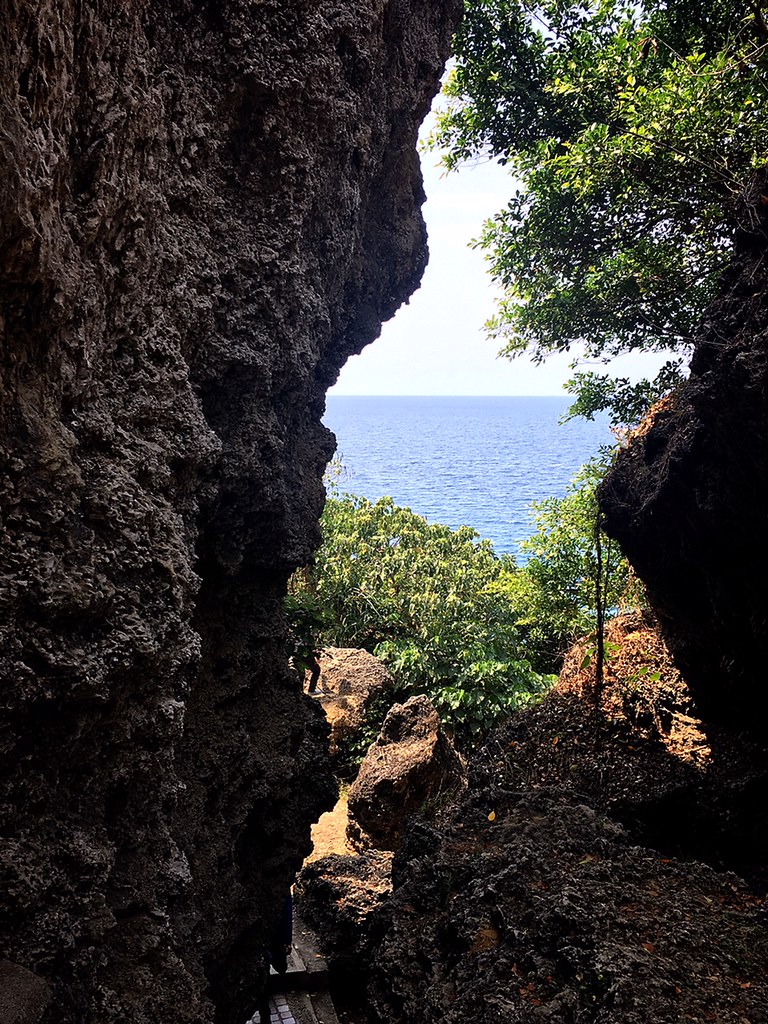
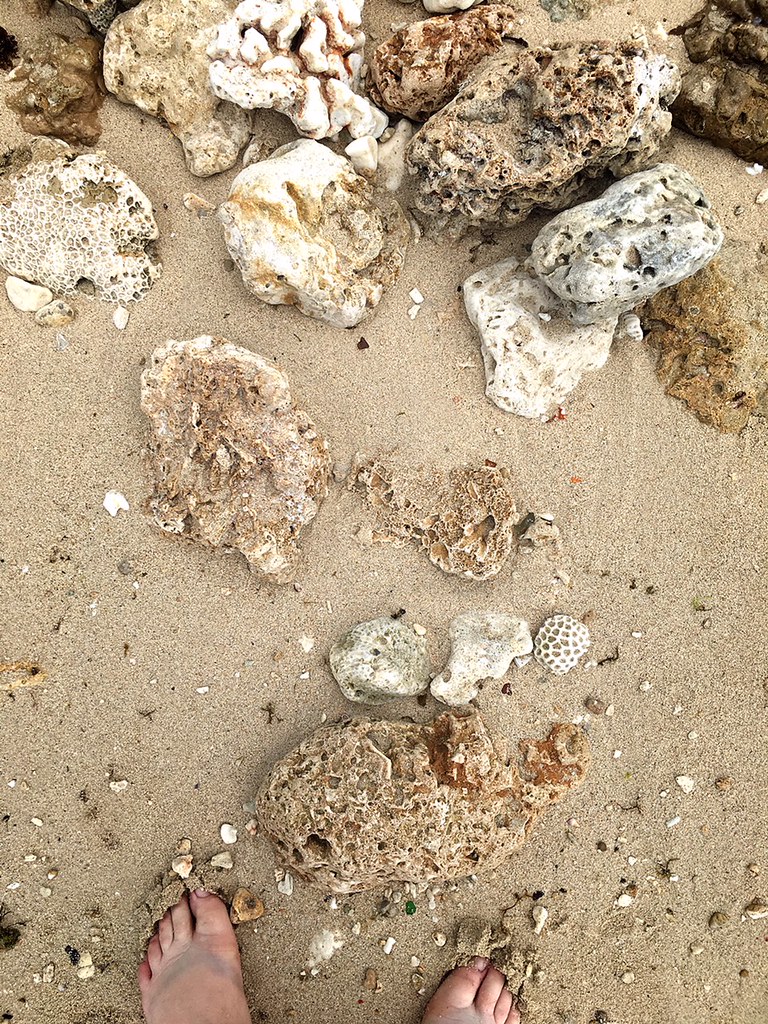 |
| If you are wondering whether my feet are dirty or just dyed by my sandals, the answer is...they were really cheap sandals. |
